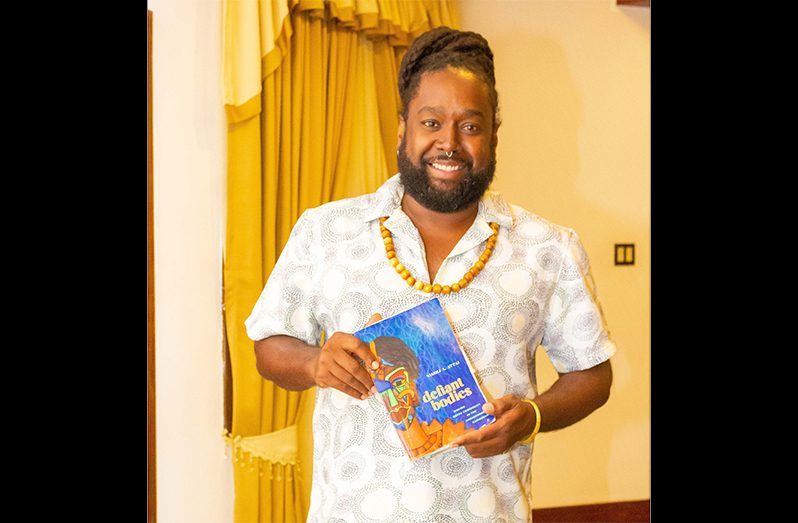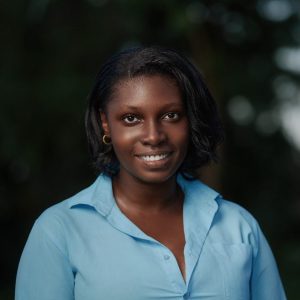Discussing queer bodies in the Anglophone Caribbean
DEFIANCE manifests in myriad ways. Several years ago, writer and professor Nikoli Attai embarked on a journey to capture and observe one particular example of the human spirit’s resilience. What began as a study quickly evolved into the development of a book. As Attai traversed the Caribbean, seeking stories of strength and courage, he found himself constantly inspired.
Published last year, his book titled “Defiant Bodies: Making Queer Bodies in the Anglophone Caribbean” was launched in Guyana. It narrates the stories of real people from the Caribbean’s “big four”: Trinidad and Tobago, Jamaica, Barbados, and Guyana. In an interview with the Pepperpot Magazine, Attai discussed his inspiration behind the book, the impact he hopes to make, and Guyana’s significant role in his inspiring research.
Who is Nikoli Attai?
Attai’s book launch was accompanied by a symposium that ignited discussions on some of the most pressing challenges faced by the LGBTQ community in Guyana and throughout the Caribbean. His book amplifies the voices of community members, offering a platform for their experiences to be heard.
Attai is an Assistant Professor of Ethnic Studies, specialising in Black queer and feminist studies. He holds a PhD in Women and Gender Studies from the University of Toronto, a Master of Philosophy in Cultural Studies, and a Bachelor of Arts in Media and Communication from the University of the West Indies. While “Defiant Bodies” is his first book, Attai says it’s just the beginning of his literary journey.
Reflecting on the book’s development, much of which occurred during the pandemic, Attai shared, “I saw all these cultural shifts happening. Behind closed doors, and even during the COVID-19 lockdown period in Trinidad, I was in Trinidad for a bit, and we had to do a lot of work with various communities, with teachers, with politicians and so on. And we were having really important conversations on a personal level with these people.” He shared. These discussions and profoundly personal stories Attai encountered became the driving force behind “Defiant Bodies.”
Defiant Bodies
Trinidadian by birth, Attai has long harboured a fascination for two subjects: gender studies and the Caribbean. His debut book seamlessly merges these two interests. Originating as a study for his PhD research, “Defiant Bodies” draws comparisons between countries, communities, and individuals. Guyana stood out in many regards, as Attai explains: “Guyana definitely played a big role in the book. So, the first two chapters where I talk about activism and the ways that the organisations are negotiating funding, I spend a lot of time talking about what I see happening in Guyana.”
Aiming to capture a comprehensive picture, Attai explored the queer experience at all levels. He elaborates, “The first chapter is really mapping the international landscape, how the funding money gets into the Caribbean through [the] UN and these places. Then the second chapter, I look at underground, how they’re negotiating the politics underground.”
Commencing his study in 2016, Attai has dedicated the last eight years to immersing himself in the clubs, night spots, and rum shops throughout the Caribbean, unearthing untold stories. His book explores the topic on a broader scale, presenting varying perspectives. While Attai seeks to capture stories at the grassroots level, he also shares views from a political standpoint, underscoring the complexity of queer experiences in the Caribbean.
Attai’s intention for “Defiant Bodies” is to challenge perceptions. Primarily, he aims to bring the human aspect to the forefront, helping readers understand that queer experiences are fundamentally human experiences. As he states, “There is this idea that, or this narrative that queer life, trans life is only about, so we can’t hide my violence and death and disease and stuff. But when we sit with these communities, we know that there’s so much more. People have the agency to negotiate this violence and this discrimination. And in really interesting ways.”
Sparking Discussions
Attai’s first book was a major undertaking involving years spent in the Caribbean exploring the lesser-known aspects of society. His work has ignited discussions across various areas in the Caribbean, achieving the impact he hoped for. This is just the beginning, Attai asserts, mentioning that he is working on a second book that is currently being reviewed at Rutgers University Press.
Moreover, Attai is working on preserving the history of queer people and their lives through photographs. He explains, “I’m also working on a queer archive of Trinidad, Jamaica from the 1960s to present, where we’re digitising close to 5,000 images and videos and stuff, and creating a timeline to chart this history.” Attai’s hope for his book and his work on a broader scale is to create a conversation starter, using his research as a catalyst to facilitate difficult discussions on an often-silenced topic.
Through “Defiant Bodies” and his ongoing projects, Nikoli Attai continues to shed light on the diverse experiences of queer individuals in the Caribbean, challenging stereotypes and fostering greater understanding. His work serves as a testament to the resilience and complexity of queer lives, inviting readers to engage with these stories and contribute to a more inclusive dialogue.



.jpg)











